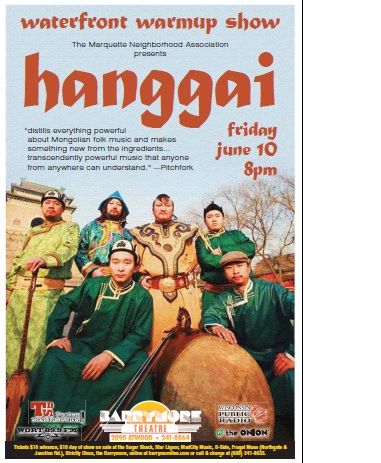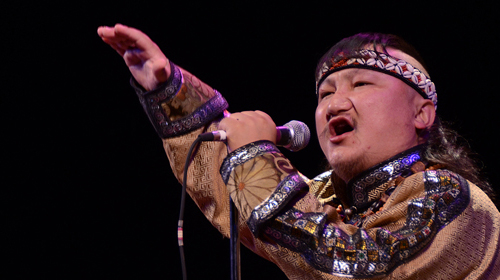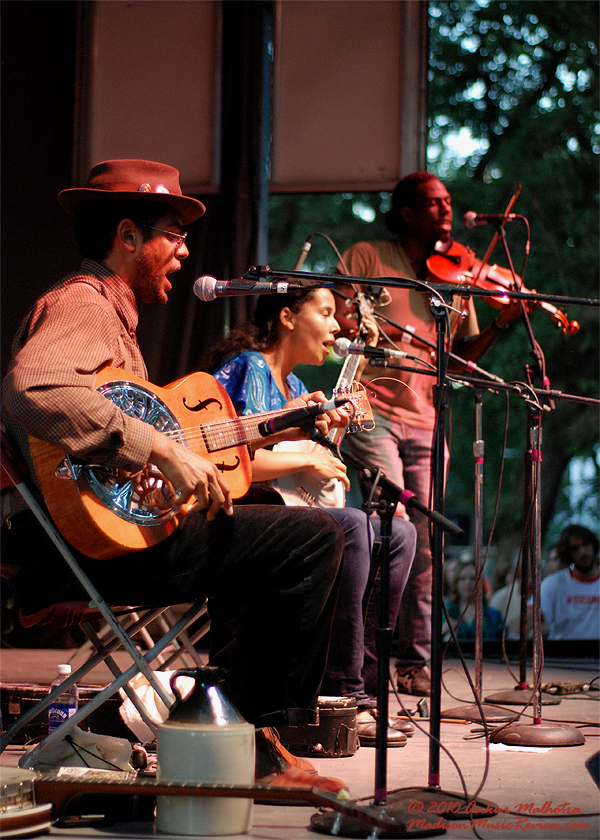HANGGAI – Fri., June 10, 2011 – Barrymore Theatre
| Event Details: | HANGGAI |
| When |
Friday, June 10, 2011
|
| Where |
2090 Atwood Avenue
Madison, WI 53703 |
| Other Info | The sensational Inner Mongolian/ Chinese band, Hanggai, is heading for Bonnaroo in Tennessee which is occurring on the same weekend as the Waterfront Festival. The band needed another performance to make the tour work so the Marquette Neighborhood Association will be presenting Hanggai in a Waterfront Warm-up show at the Barrymore Theatre on Friday, June 10th at 8pm. The six-piece band was a huge hit at the Madison World Music Festival /Willy St. Fair two years ago. At that show, no one knew that they were playing without their lead performer, Ilchi. This show should be incredible with him back in the saddle so to speak. Tickets will be on sale very shortly on the venerable Theater’s website www.barrymorelive.com and at all Barrymore ticket outlets. Mongolia is huge. Its northern mountains (except for Tuva, which is a republic of Russia) and part of its southern plains constitute the independent state of Mongolia, while the wide curve of the southernmost Mongolian plains, nearly half a million square miles, are in China, forming the semi-autonomous Chinese region known as Inner Mongolia. Only about 17% of the population of Inner Mongolia is ethnically Mongol, Ilchi, the leader of Beijing-residing, Inner Mongolian band Hanggai, is one of them. At the age of 12 his family moved to Beijing where, while remaining in contact with and visiting his homeland, he spoke Chinese, not Mongolian. In his early 20s, influenced by such bands as Rage Against the Machine, he formed a raging rock combo called T-9. Around 2003, a workshop given by the khoomei singer Odsurung in Inner Mongolia’s capital Hohhot inspired Ilchi to begin playing and singing traditional music; he disbanded T-9 and gathered a collective of Mongolian and Chinese musicians to join him in playing an energetic version of Mongolian music in Beijing’s small bars and rock clubs. That’s where Robin Haller ran into them. Haller, a Brit who hosted a Chinese folk music show on Chinese Radio International, brought sound engineer Matteo Scumaci to Beijing, and in his apartment they recorded Hanggai’s CD, “Introducing Hanggai,” released in 2008 by UK label World Music Network. (The word hanggai signifies a Mongolian idyll, a beautiful pasture with mountains, trees and streams.) Ilchi changed his singing language from Chinese and English to Mongolian, and swapped his electric guitar for one of Mongolia’s iconic instruments, the two-stringed lute tobshuur. Fellow Mongolian Bagen plays the other most characteristic Mongolian instrument, the morinkhuur, known in Chinese as matouqin and often called “horse-head fiddle” because of the equine head carved on its peg-box. Held like a cello, it has two strings made of twisted horsehair. Mongolia and Tuva are, of course, known for several styles of extraordinary vocalizing, recognized under the umbrella denomination of “throat singing”, “overtone singing” or “khoomei”. Many of these involve the creation of two notes at the same time, the best-known form being a low drone note generating a high melodic whistling in its upper harmonics. Hanggai, though, uses another form of khoomei in which morin-khuur player Bagen creates a gravelly deep vocal sound without the whistling but with a very low sub-octave. Traditional Inner Mongolian songs speak of great-plains life--horses,heroes, marriage. There’s a loping, horse-trotting rhythm to much of the music, so much so that melodically it sometimes is reminiscent of American cowboy song, and the faster numbers can connect so naturally with bluegrass that Hanggai have shared gigs with the likes of Bela Fleck and the Sparrow Quartet. The members of Hanggai for their US tour are: Ilchi (vocals, tobshuur) Bagen (vocals, morin khuur) Yilalata (vocals, electric and acoustic guitars) Wu Junde (bass) Li Zhongtao (percussion) www.hanggai.co.uk www.myspace.com/hanggaiband |







